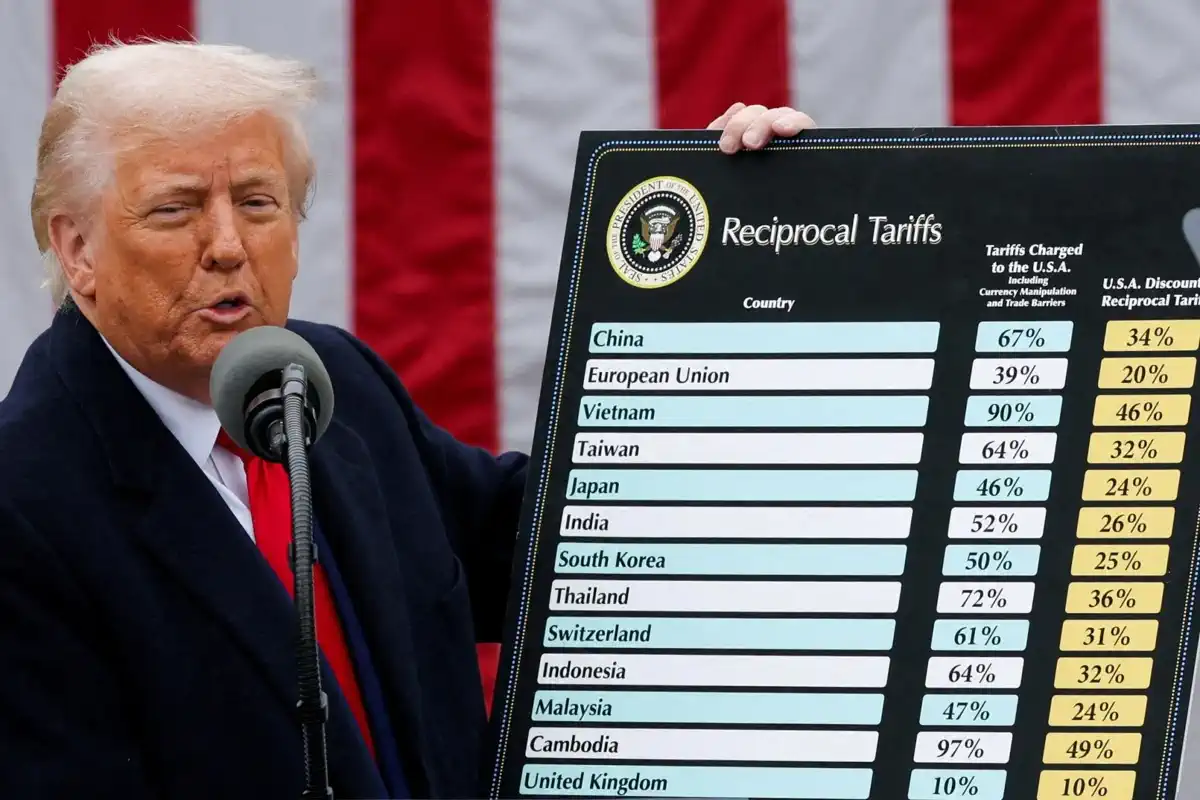
In a strategic shift, President Trump announces a 90-day suspension of new tariffs for most countries, excluding China, which now faces a 125% tariff. The move aims to facilitate trade negotiations and has led to a significant market surge.
Key Points:
- Tariff Suspension: President Trump declares a 90-day halt on new tariffs for most countries.
- China's Increased Tariffs: Tariffs on Chinese goods surge to 125%, citing "lack of respect."
- Market Response: Dow Jones jumps over 2,200 points following the announcement.
- Global Negotiations: Over 75 nations express intent to negotiate new trade deals.
- Bipartisan Concerns: Both Republican and Democratic leaders voice apprehensions about the tariff strategy.
In a significant policy shift, President Donald Trump has announced a 90-day suspension of new tariffs for most countries, while imposing a substantial 125% tariff on Chinese imports. This decision aims to alleviate escalating trade tensions and opens the door for renewed negotiations with global partners.
Details of the Announcement
On April 9, 2025, President Trump declared a temporary halt on the implementation of new tariffs for a majority of U.S. trading partners. This 90-day pause is intended to provide a window for negotiations and to address concerns from international allies and domestic stakeholders. However, China is notably excluded from this reprieve, facing an increased tariff rate of 125% on its exports to the United States. President Trump cited China's "lack of respect" in trade practices as the rationale for this heightened measure.
Market Reactions
The financial markets responded positively to the announcement. The Dow Jones Industrial Average surged by over 2,200 points, marking one of its most significant single-day gains in recent years. Investors interpreted the tariff pause as a potential de-escalation in the ongoing trade disputes, fostering optimism for economic stability.
International Negotiations
In the wake of the tariff suspension, over 75 countries have reportedly expressed interest in negotiating new trade agreements with the United States. Treasury Secretary Scott Bessent emphasized that this period would be utilized to pursue "bespoke" arrangements tailored to each nation's trade relationship with the U.S. The administration aims to address various issues, including tariffs, non-tariff barriers, and currency policies, during these negotiations.
Bipartisan Concerns and Legislative Responses
The tariff strategy has elicited reactions from both sides of the political aisle. Prominent Republican senators, including Ted Cruz and Thom Tillis, have voiced concerns about the broad application of tariffs and their potential economic repercussions. In response, a bipartisan group of lawmakers has introduced the Trade Review Act of 2025, seeking to require congressional approval for the implementation of new or modified tariffs. This legislative effort underscores the growing scrutiny of the executive branch's trade policies.
Conclusion
President Trump's decision to pause new tariffs for most countries while intensifying pressure on China represents a nuanced approach to international trade relations. As the 90-day window unfolds, the administration's ability to negotiate favorable trade deals will be closely monitored by global markets, international partners, and domestic stakeholders alike.
Stay Informed
For ongoing coverage and in-depth analysis of international trade developments, visit Gloobeam.com.